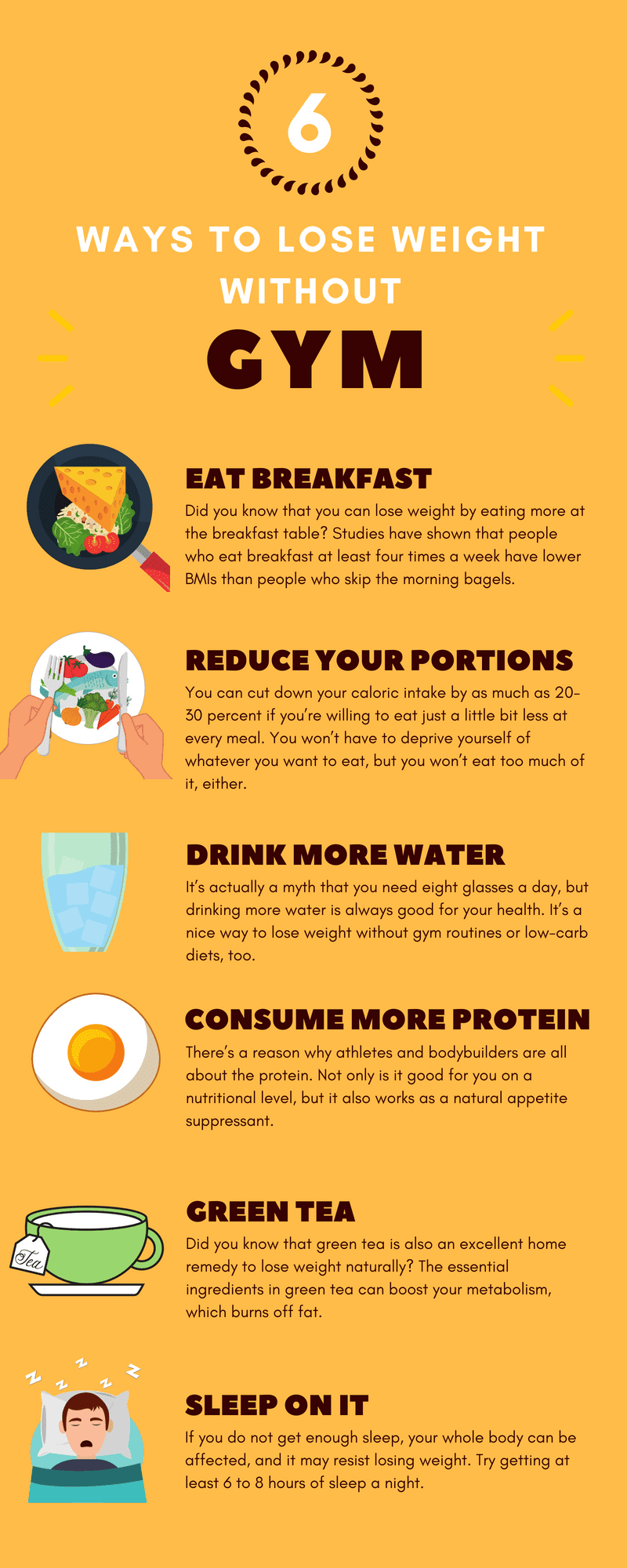Depression is one of the most frightening forms of mental illness to encounter, both as a person experiencing it and watching someone else go through it. When you are suffering, you see no hope, even if people are available to help you. Plus, when you see someone else suffering, you may try to help, but they are unwilling to accept help.
To learn how to train your brain to avoid depression, you must throw out the idea that you can only help those who can help themselves. Sometimes, we can’t help ourselves, and we need a helping hand to lift us. Asking for help can be difficult, but mental illness can kill when it becomes bad enough for a person to consider suicide.
If you or someone you know needs help now, text ‘GO’ or ‘HELP’ to 741741 for free, confidential help immediately. The text Crisis Helpline is available 24 hours a day, 7 days a week. The crisis line is prepared to help with issues of abuse, depression, anxiety, grief, eating disorders, suicidal thoughts, and other problems that you may consider a crisis in your personal life.
Beginning to Train Your Brain to Avoid Depression
When you think about feelings of sadness, you are most likely thinking about something that has happened in the past, and you can’t seem to get past it. Moving forward, you must shift your focus to the future instead.
What has already happened cannot be changed. You can relive it or think about how you wish it could have been different, but continuing to relive the negative events of the past won’t help anything.
If you want to move on from the past, you must process what happened and take action right now in the present moment, which will lead you to a better future. For example, if you are dealing with a divorce, there are many negative aspects to focus on, and none of it will change the fact that you are divorcing.
Instead of focusing on that negative, make a list of positive traits that your perfect partner should have. The list is one positive step in the right direction. Keep the momentum going.
Picture the Movie of Your Depression Starring: You
Tell the story of your mental illness, including the events that led up to this current mindset of sadness. If your life story were only 15 minutes long, determine how much time this current depressed mood took up.
There was your childhood, teenage years, adulthood, and the epic moments that would be essential chapters in your story. Then, this bad thing happened. Now write the next scene where you overcome seemingly insurmountable hardship to go forward victoriously toward your happy ending.
Avoid Trying to Be the Best
Researchers say that competition and the drive to be the best may lead to depressed thoughts when or if we are unsuccessful in fulfilling our own high expectations for ourselves. The research shows that “When people feel insecure in their social environments, it can focus them on a hierarchical view of themselves and others, with a fear of rejection if they feel they have become too inferior or subordinate. This may increase vulnerability to depression, anxiety and stress.”
If you feel like you’re less than someone else, quit making comparisons. You are a unique and beautiful being, and no one has had the same experiences as you.
14 Healthy Habits That Also Support Brain Health and Help Avoid Depression
There are many ways you can avoid or alleviate the issues while also supporting brain health. You don’t have to do all of these tips, but choose ones that you find enjoyable and relaxing.
1. Visit Somewhere New
Traveling gives you an open mind and heart, allowing you to embrace the positivity all around you. While you might not always be able to go far away, you can visit a town nearby that you’ve never seen before. Seeing a new place can give you a fresh perspective and help you process your thoughts.
2. Focus on the Positive
Your mindset can help you avoid mental health issues. If you stay positive rather than complaining or fixating on the negative, it’ll help you maintain peace. Complaining leaves you stuck in a negative loop, leading to depression and anxiety.
You can control your mind, but you must be willing to shift your thoughts first. Don’t blame others for your feelings because you are the only one in control.
3. Learn Something
Even if you already have the career of your dreams, there’s always more to learn. Learning can help you feel better as it expands your knowledge and gives you purpose. It also reminds you what you’re capable of.
You don’t have to take a full college course for the benefits, either. Find videos or tutorials online to teach you some new tips about your interests. However, if you’re dedicated enough, you can even put your energy into learning a new language.
4. Avoid Overthinking to Beat Depression
Overthinking is a sure way to become depressed. If you can avoid overthinking, it benefits your brain and allows you to steer clear of mental illness. Overthinking is a dangerous habit that affects your thoughts and overall well-being.
When you constantly overthink things, you can’t live in the present. It means you’re fixated on the past and anxious about the future. Pushing those thoughts away can help you focus on the people and things around you right now.
Everyone overthinks sometimes, but you must find a way to let go. When your thoughts threaten to take over, do something that’ll keep you busy until you can overcome them.
5. Do Something Kind for Someone
Doing something for another person is a great way to make yourself feel better. It makes you think about something other than your problems and sadness. Plus, being kind to others promotes a sense of well-being within you.
Find someone who needs your help or a cause that inspires you. Then, see what you can do to make a beneficial change.
Your kindness could be picking up trash from the side of the road or helping a local charity. Or, you could help someone with a task they struggle with.
6. Get Enough Sleep
Sleep improves brain function and prevents mental illness. Getting enough rest is essential for keeping the brain sharp, and it helps you perform better in social situations. You’ll also remember things better and learn quicker.
Your body requires high-quality sleep for your overall health. Research shows that people who don’t get enough sleep are more likely to become depressed than others. If you struggle to fall asleep at night, try avoiding screen-time two hours before bed and avoid caffeine in the afternoon.
7. Stay Busy to Minimize Depression
When you feel like you can’t control your thoughts and feel negativity creeping in, do what you can to keep yourself busy. If you stay busy, you won’t think troublesome thoughts as often, and you’ll forget about your problems for a while. Start staying busy by putting your time and energy into the things important to you right now.
If you aren’t sure where to get started or you’ve already tackled the essentials, there are plenty of other things you can do. Start by finding a new hobby or picking up an old one that you stopped doing in the past. You can do a project or find something productive that you’ve been putting off for a while.
Whatever you choose to do, make sure it keeps your mind busy. It’ll help push away the thoughts that contribute to mental illness while helping you focus on the good all around you.

8. Think About Your Social Circle
The people you spend your time with can make a big difference in your life and overall well-being. If the people you spend your time with have a negative attitude, they aren’t the best for your mental health. You might notice that they make fun of people, gossip, or behave in ways that don’t align with your values.
Don’t ignore any of the red flags you see in the people in your life. Distance yourself from toxic people who don’t spend their time and energy on beneficial ideas and tasks. Plus, stop spending time with people who make you feel bad about yourself.
Distancing yourself from toxic people isn’t the only thing you should do regarding your social circle. Focus on building strong relationships with like-minded people. They can still have different opinions and backgrounds than you, but they should have a positive mindset.
Additionally, the people you spend your time with should support you and build you up. Research shows that having social support can protect you from mental illness. Stay in contact with friends and family who love and support you, even when life gets busy.
If you need to meet new people, consider joining a club or picking up a new hobby. You’ll meet other people who want to do productive things with their time, increasing your chances of meeting positive people.
9. Beat Depression by Implementing a Healthier Diet
Your diet affects your brain, potentially causing mental health issues. High-fat diets affect your body in the same way that chronic stress does. When you aren’t eating healthily, you miss out on essential vitamins and nutrients that help your brain.
Eating a healthy diet improves your brain health while helping you avoid mental illness. The nutrients and vitamins also help you think more clearly, allowing you to work through your feelings positively.
A healthy diet requires eliminating high-sugar, high-fat, and processed foods. Instead, eat lean protein, fruits, and vegetables. Aim for foods with omega-3 fatty acids, such as nuts or salmon.
10. Reduce Your Time on Social Media
Sometimes social media is too much for your mind, but you can quickly make a change. Studies show that too much social media can cause depression. It also decreases your self-esteem and can be addicting.
If social media is necessary for staying connected with loved ones, you can still limit your time. Cut back on your daily use, and be aware of when you think it’s affecting you. If you notice negative thinking as you scroll, force yourself to close the app and do something else.
If you can’t help but click on the app when you get on your phone, consider deleting it. Then, you’ll have to log in to the website on a browser, making you less likely to start scrolling habitually.
11. Exercise Regularly
Exercise is one of the best ways to train your brain to avoid mental illness. You can do whatever activity you want, including running, strength training, or yoga. Whatever exercise gets you out of the house, makes you feel connected to your body, and gets your heart pumping will do the trick.
High-intensity exercise releases endorphins in your body, which are chemicals that make you feel good. However, even moderate or low-intensity activities help because they promote nerve cell growth. The growth improves brain function and makes you feel better, improving your mental health.
12. Reduce the Number of Choices You Have to Make Each Day
It can quickly become overwhelming and stressful if you have too many choices. When this situation occurs daily, it can lead to mental illness. Additionally, regularly wanting to make the best possible decision at a moment’s notice can cause depression.
Minimizing the number of decisions you have to make each day helps you avoid depression. Even small choices can cause problems when there are too many of them. Minimizing your last-minute choices can make all the difference, but you can simplify your life.
Start by eliminating simple decisions, such as what you’ll wear to work or eat for breakfast. You can make these choices ahead of time by planning and preparing the night before. It eliminates some of the decision-making of your morning, helping you start on a less stressful note.
13. Minimize Stress to Manage Your Depression
Frequent stress is one of the leading causes of depression, so minimizing it is essential to your mental health. Some of the ways you can manage stress are to:
- Avoid overcommitting yourself
- Let go of things you can’t control
- Practice mindfulness
- Meditate
- Plan for unavoidable triggers
- Avoid procrastination
14. Eliminate or Reduce Alcohol, Drugs, and Nicotine
Frequently drinking alcohol is associated with higher risks of depression, so limit your alcohol intake. Drug use also causes mental illness, and you’ll want to eliminate the use.
Additionally, smoking cigarettes can trigger depression, although you might want nicotine when you’re unhappy. Quitting nicotine can drastically improve your mood and reduce your risk, but it isn’t easy. However, you can do it if you stay focused and ask others to hold you accountable.

Final Thoughts on Train Your Brain to Avoid Depression but Not Your Emotions
Negative thoughts and emotions are normal, even though some people think that avoiding all negative thoughts prevents depression. However, researchers in the Journal of Personality found that an “inclination toward thought suppression is associated with obsessive thinking and emotional reactivity.”
To avoid depressing thoughts, try to learn to observe negative emotions as they happen while also acknowledging the good things about yourself. Don’t let your negative thoughts dictate your life or cause depression.












